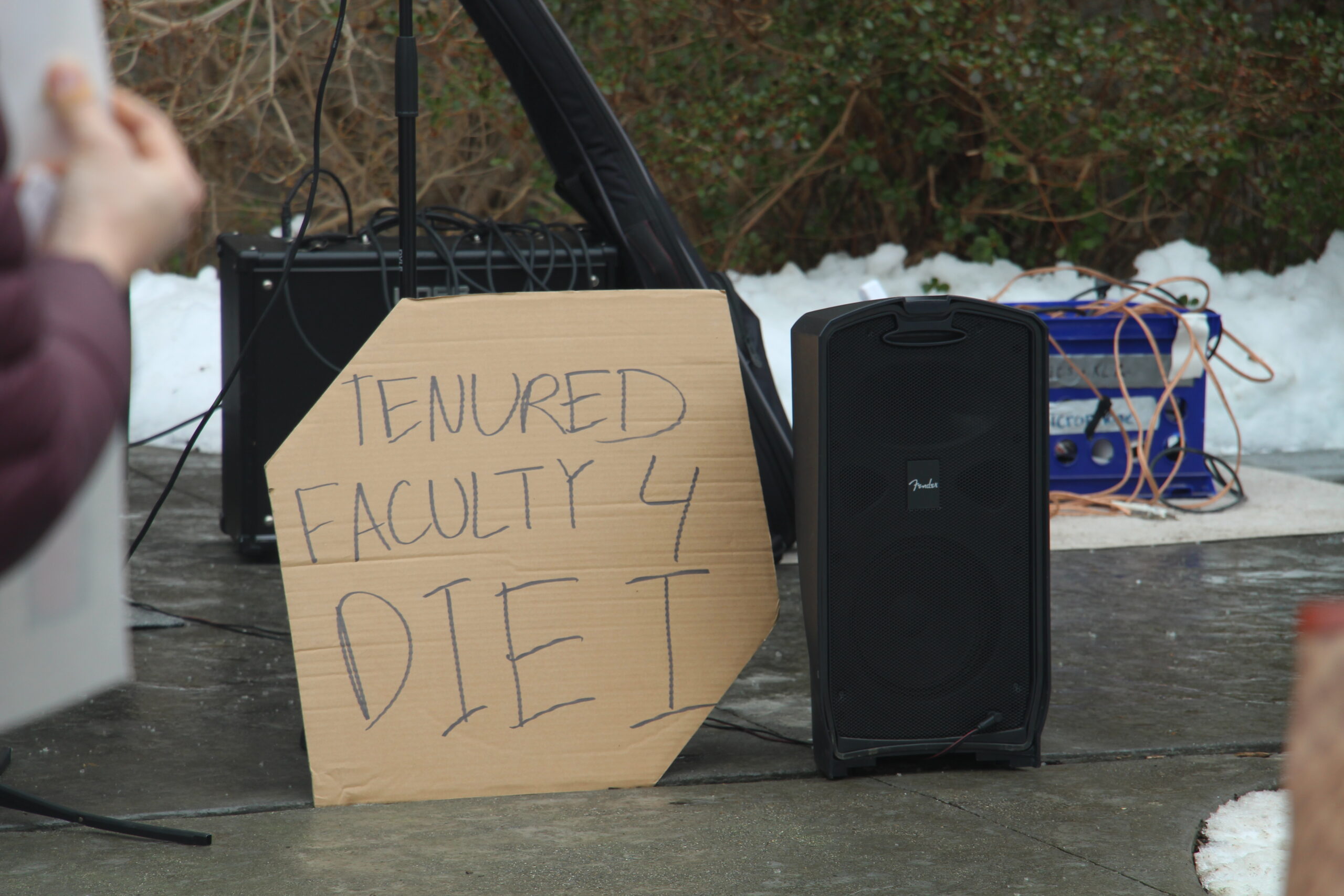How does religion fit in the social atmosphere of a college? These few years are a time devoted to exploration of identity, so it seems fitting to dedicate some thought to religion and spirituality in college.
Reverend Claudia Highbaugh has been at Conn for 12 years and currently occupies the position of Dean of Religious and Spiritual Life. She explained that the College offers a myriad of opportunities for any sort of religious practice or exploration that students want to embark upon. “If students want to organize a Buddhist sitting or any kind of meditation group, they can do that,” she said. “If Quakers want to come and organize, they can. One year we had a Mormon group of a few people. So it’s really based on student interest, we don’t run groups for people that don’t actively say they want to participate.”
And student interest certainly does exist. Abby Merritt ’21, who identifies as an evangelical Christian, explained, “there’s a lot of ways that, as a religious person, you can find spiritual fulfillment on campus.” She cited the Intervarsity Christian Fellowship and student-run weekly Bible study as some of her personal favorites—the Bible study, in particular, is an initiative driven by student interest and support. However, she also noted that outside of these religious communities, Conn can be “a pretty secular society.”
This isn’t to say that the presence of religious and spiritual life is limited only to those students who already identify with a particular faith. Highbaugh insisted that the Department of Religious and Spiritual Life encourages students to participate regardless of their beliefs (or lack thereof), saying “If 25 people, if 5 people, came to us and said ‘I don’t know what I believe in,’ ‘I don’t believe in anything,’ or ‘I want to study this book,’ then we would support them.”
However, it appears that much of the student body at Conn may not be aware of these opportunities. “Religious and spiritual life doesn’t always get a lot of attention,” said Rabbi Susan Schein, the director of Zach’s Hillel House and one of the five chaplains on campus. “Students need to know what’s going on,” she added, “that there are opportunities.” The department is currently busy as ever, as Schein explained that they are in the process of sending a group of students to Texas in order to help repair the lingering damage from Hurricane Harvey.
Schein stated that, from her own perspective as a Jewish Rabbi, this form of service reflects the idea of “tikkun olam”—to repair the world. “Each [religion] has its own version of that, to do good works,” she said. Highbaugh also echoed this sentiment, stating that in her experience, religion and social justice movements are very closely linked; “Community Partnerships came out of the chapel about thirty years ago. Habitat for Humanity was started by a presbyterian minister… Martin Luther King [Jr.] was a baptist minister, most people have no idea about that.”
At an institution that prides itself on its message of social justice, this indicates the kind of role that religion can play in what could easily be considered a fairly secular environment. “Religion belongs on the soles of your shoes,” said Highbaugh, meaning that people ought to not only hold their beliefs, but enact the values that they express.
Indeed, even from its roots Conn was not as religious as other similar institutions. Highbaugh explained that many American universities and colleges were founded by religious groups to educate pastors—like Harvard, or Jesuit universities such as Boston College—but Conn never was so. This College started out to educate women in the state of Connecticut, and though it’s always had a religious presence, its origins were not strongly religious like so many other colleges.
This hasn’t stopped religious and spiritual life from developing its place on campus, however. “It’s actually growing in some ways, I think,” said Merritt. “A lot of people are searching… for a meaning and for a purpose at college.” Highbaugh agreed, stating her opinion that “spiritual and emotional health is a part of a student’s life.” Similarly, Schein expressed that religion helps in “bringing meaning to yourself and connections with others.”
Overall, both Schein and Highbaugh stressed the fact that there are opportunities for every student to get involved with religious and spiritual life, regardless of their prior experiences of current beliefs. Schein even mentioned that there are spiritual events on campus that are not necessarily religious in nature, such as the meditations frequently run by CC Curtiss. Highbaugh also pointed out that spirituality can be found sometimes through unconventional means, citing the Arboretum as an example.
“The campus itself is a park,” she said, “They know every tree and how old it is and when it was planted here… You want a spiritual experience? Every season [the Arbo] looks different, and it’s beautiful and it’s engaging.” Though this isn’t a traditional sense of spiritual life by any sense, it hearkens back to the Romantic and Transcendental traditions of the area, and it may just be a tradition worth revisiting for students seeking a new form of spiritual fulfillment at Conn.










It fits as well as Beggaron’s head fits up her tubaron instrument.